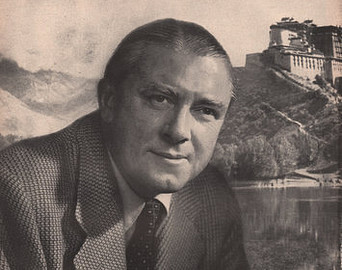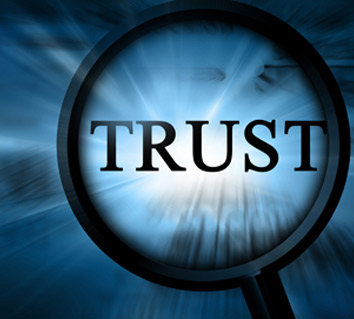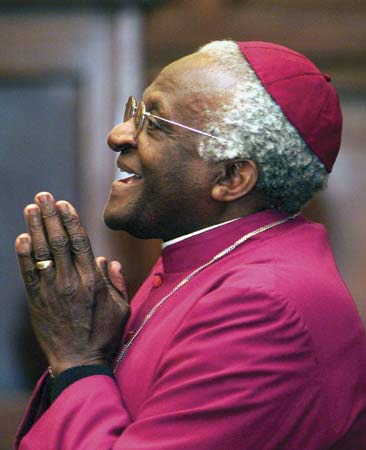There comes a time in every man’s education when he arrives at the conviction …. that he must take himself for better or worse as his portion.
Ralph Waldo Emerson, (“Self-Reliance,” 1839-40)
My dear friend,
My fervent prayer is that your recollections of the year now passing are well-supplied with joyous remembrances. With tales of grace and benevolence that rightfully leave you humble and contrite for the blessings that have come to you and your loved ones.
That said, many of us have had pain visit our lives this past year as well. I hope that your faith allowed you to forego the suffering that we often layer upon pain caused by circumstances beyond our control. I hope that you felt and expressed sympathy and love for yourself, not the unforgiving and circular feeling of self-pity. But as a member of humankind, I know that wise self-sympathy is not always the first stop along the journey of pain.
 At this time of year, we find that introspection goes hand in hand with holiday festivities. Perhaps as you see the world unfold, you ask yourself How can I be more humane? Recognizing that humanity is a manifestation of natural laws, James Hilton writes that even in his magical Shangri-La, our humanity is, “forever in the process of growing, it will by necessity always be imperfect.” True, but in this time we live, our imperfections seem to be magnified by a lack of trust so prevalent in our new century. Sadly, distrust seems to be growing more entrenched each year in the behavior of individuals and, thus, in the institutions they have built, institutions we have historically looked to as beacons of this revered quality of reason–trust.
At this time of year, we find that introspection goes hand in hand with holiday festivities. Perhaps as you see the world unfold, you ask yourself How can I be more humane? Recognizing that humanity is a manifestation of natural laws, James Hilton writes that even in his magical Shangri-La, our humanity is, “forever in the process of growing, it will by necessity always be imperfect.” True, but in this time we live, our imperfections seem to be magnified by a lack of trust so prevalent in our new century. Sadly, distrust seems to be growing more entrenched each year in the behavior of individuals and, thus, in the institutions they have built, institutions we have historically looked to as beacons of this revered quality of reason–trust.
What sadder example of trust forfeited is there than that displayed by our political class? Our elected officials practice with singular intent the distrust defined by the incomparable journalist and philosopher Jimmy Breslin: lawmakers seem “to go through life with the view that no slight, no difference is so small that it cannot be converted into a feud.” They act less the elected servants of the people and their laws and more the self-absorbed, anointed patrician.
Through word and deed, we find that we lack trust in many celebrities, sports stars, some business leaders, even religious leaders. The reason trust is waning is relatively easy to diagnose: Lots of people act in untrustworthy ways. As a result, my message this year is about how we develop an intuitive bias toward being trustworthy. The transformational capabilities given us at our creation equip us to be an individual who can be revered for the substance of our character.
 The good news is that we never lose our instinctive sense of right from wrong. Common-sense morality is hardly ever erased from our consciousness, but norms of moral conduct get hijacked by the rational mind, as it comes up with all sorts of rationalizations, excuses spawned from witnessing the faithless conduct of others: we tell ourselves “Oh, it’s OK—everyone’s doing it.” Situational ethics is tolerated widely now. Our actions are measured by the lowest common denominator. We forget that our character is the canvas upon which others paint a picture of who we really are.
The good news is that we never lose our instinctive sense of right from wrong. Common-sense morality is hardly ever erased from our consciousness, but norms of moral conduct get hijacked by the rational mind, as it comes up with all sorts of rationalizations, excuses spawned from witnessing the faithless conduct of others: we tell ourselves “Oh, it’s OK—everyone’s doing it.” Situational ethics is tolerated widely now. Our actions are measured by the lowest common denominator. We forget that our character is the canvas upon which others paint a picture of who we really are.
So my definition of a trusting relationship is “a safe place.” Is it not a leap of faith to trust another? Yes. But we either trust someone or we don’t… it’s a binary matter, a placing of faith or a breach of faith. A breach of faith is seldom mended, either.
Two hundred and fifty years ago, Adam Smith wrote that success depends on “the good opinion of our neighbors.” Yet our culture today values success in different terms: wealth, notoriety, prestige, power and influence. But in my estimation, a far more compelling sign of a life well lived is to be a person of steadfast character, one who can be trusted and, thus, IS trusted. As my friend Howard Rockett recently told me, “Today too many lives lack a sense of proportionality.” A sense of what is truly important in the long run. How did that gap in values come about? David Brooks identifies one cause:
Modern society has created a giant apparatus for the cultivation of hard skills, while failing to develop moral and emotional facilities . . . . Children are coached on how to jump through a thousand scholastic hoops. Yet by far the most important decisions they will make are about whom to marry and when to befriend. What to love and what to despise and how to control impulses. On these matters, they are almost entirely on their own (The Social Animal, Random House, 2012).
Brooks tells us that too much is taught by “wonks,” and by implication, too little instruction comes from parents, civic officials and spiritual leaders. “Children,” James Baldwin writes, “have never been good at listening to their elders, but they never fail to imitate them.
 When I speak around the country on the subject of trust, I often ask my audience, “When was the last time someone asked you to trust them and you did?” The collective responses are typically chuckles and sardonic laughs. I then ask the same question as I display a picture of Mother Teresa. Naturally, affirmative nods follow. Who would not trust a saint-in-waiting? When asked why, the responses join around the same traits – unconditional love, compassion, humility, charity and a non-judgmental heart. Does not her example suggest a path to assuring that this coming generation can be trustworthy? The moral effervescence of a Mother Teresa comes not from a genetic predisposition but from a lifetime spent nurturing traits of honesty and self-reliance and by example teaching them to others. Her actions have validated who she is, a merciful, trusted child of God. Why is it difficult for some of us to embrace the other-directed hallmarks of trustworthiness, and how, despite that difficulty, do we start down this road?
When I speak around the country on the subject of trust, I often ask my audience, “When was the last time someone asked you to trust them and you did?” The collective responses are typically chuckles and sardonic laughs. I then ask the same question as I display a picture of Mother Teresa. Naturally, affirmative nods follow. Who would not trust a saint-in-waiting? When asked why, the responses join around the same traits – unconditional love, compassion, humility, charity and a non-judgmental heart. Does not her example suggest a path to assuring that this coming generation can be trustworthy? The moral effervescence of a Mother Teresa comes not from a genetic predisposition but from a lifetime spent nurturing traits of honesty and self-reliance and by example teaching them to others. Her actions have validated who she is, a merciful, trusted child of God. Why is it difficult for some of us to embrace the other-directed hallmarks of trustworthiness, and how, despite that difficulty, do we start down this road?
Here is what the author George Saunders says. When asked recently to speak to a graduating class at Syracuse University, Saunders reminded the graduates that commencement addressees are expected to provide advice, including goals to pursue. In fulfilling that obligation, his heartfelt advice was–“Try to be kinder.” Why aren’t we kinder, (and more humble, caring, loving)? Here’s his thinking:
Each of us is born with a series of built-in confusions that are probably somehow Darwinian. These are: (1) we’re central to the universe (that is, our personal story is the main and most interesting story, the only story, really); (2) we’re separate from the universe (there’s me and then, out there, all that other junk – dogs and swing-sets, and the State of Nebraska and low-hanging clouds and, you know, other people); and (3) we’re permanent (death is real, OK, sure – for you, but not for me).
Now, we don’t really believe these things – intellectually we know better – but we believe them viscerally, and live by them, and they cause us to prioritize our own needs over the needs of others, even though what we really want, in our hearts, is to be less selfish, more aware of what’s actually happening in the present moment, more open, and more loving.
The last time I took a poll, genuinely kind people are universally trusted.
How do we reach that goal? Clayton Christensen advises us to ask ourselves, “What is the trajectory of your life?” He explains that the trajectory of our lives comes about from the “the beliefs that inform our lives.”
What beliefs should inform your life? I myself would start with being more loving, less selfish, more non-judgmental, more humble and more compassionate! And that includes how I consider and treat myself: have sympathy for what you have had to face, not the more extreme emotion of self-pity—that emotion is too extreme, taking you in circles, but sympathy is kind and in proportion to human challenges. People have a lot of time for individuals who live those traits because they are reassured in their presence. They have faith in such folks. Don’t be frightened of taking the first step–our souls are well versed in being such a person. Besides, the best measure of our lives lies not in our fears, but in our aspirations!
 Desmond Tutu writes that, “All hatred is based on fear. But love is stronger than hatred.” In the real world love is not intended to be some Pollyanna-ish “flower-child” notion. Through the primacy of our hearts we long for love. It is the underpinning, the essential prerequisite for living the life that Christ envisaged for each of us. When we express our love for another is it not a prayer that the Lord’s blessings will come upon them? When we approach people we meet and work with in the wonder of love’s radiance, no life is ordinary.
Desmond Tutu writes that, “All hatred is based on fear. But love is stronger than hatred.” In the real world love is not intended to be some Pollyanna-ish “flower-child” notion. Through the primacy of our hearts we long for love. It is the underpinning, the essential prerequisite for living the life that Christ envisaged for each of us. When we express our love for another is it not a prayer that the Lord’s blessings will come upon them? When we approach people we meet and work with in the wonder of love’s radiance, no life is ordinary.
Once we approach others with love in our hearts and attitudes, we can have a non-judgmental view of each of them. However, that’s not easy, as we most often judge others on incomplete information. And for reasons we can’t explain, that morphs into envy! Have you ever noticed how easy it is to be envious of strangers? Rather than hardening our views in envy, we should soften our hearts. We all have fits of jealousy – does it ever feel good? Jealousy is not worthy of the Lord’s plan for us. When someone does something remarkable, he or she would want us to revel in the knowledge that we are of the same species, meaning that you are remarkable, too! He or she would want us to bathe as well in the wonder of it all. Remember, when we come to “know” how others differ from us it will evoke curiosity, not distrust—that’s a good sign that our transformation to trustworthiness is coming along nicely. The start of a resurrection to a higher self.
Continually inquire whether your soul has been nurtured by good and decent deeds, and ask yourself whether you have cherished relationships. In other words, Does your life have meaning? Center on that question and you will come to realize that your soul is a divinely granted birthright–the spiritual reminder that at its depth we are all beautiful. If you don’t see your life as meaningful right now, rejoice at your candid self-reflection. Recognizing our shortfalls is not meant to beat us down. As St. John professed, the truth will indeed set you free… free to dream. Free to take on the new direction of changing, transforming ourselves. Then when we place a foundation under our dreams, one based on “our actions past,” meaning memories of those times we have been trustworthy and thus trusted by others, we experience yet another resurrection.
Several weeks ago, Jean and I celebrated a mass in the mountains of North Carolina. I really like that intention–a celebration! That day, the priest, a man we did now know, began walking up the aisle and you could at once see that his face was suffused with the most glorious, intoxicating smile I had seen in a while. At that moment, as joy radiated from his being, I truly believed and felt that we were going to partake in a celebration, and what a glorious feeling it was!
That holy priest’s behavior reminded me vividly that celebrations are an outward manifestation, a demonstrable act of gratitude for the blessings we so thankfully receive. My friends, regardless of the difficulties that beset us as well, and even as we search for trustworthy souls to join us as we walk the corridors of society, never miss an opportunity to celebrate all that is good in our lives and the lives of those we love. Celebrations ignited by trusting relationships are odes to character, self-sympathy, humility, and compassion! Celebrations proclaiming that much unexpected but remarkable grace yet abounds in the world. Watch for transforming moments of grace–but also help bring it into being.
May God continue to bless you.
Your friend,
Sandy
As in years past, I want to thank my dear friend and editor Linda W. Hobson, Ph. D., for her contributions to this message.


Nicely done Sandy. Over 280 yards straight in the middle of the fairway. With a balata ball and a persimmon driver. Sweet. Thank you…
Dear Sandy:
I really enjoyed your Christmas message and your essay on trust. With the passing of Nelson Mandela, I believe he was an example trust and love you describe in the way he lived his life.
Best wishes to you and your family for a very Merry Christmas.
Walt
Walter Lovenberg
waltat3008@aol.com
Sandy, Thank you so much for personally sending me the use of your holiday letter as a blogpost! This looks super, with wonderful illustrations/graphics, and now even more readers will have a chance to read your insightful ideas in time to meet the new year. “The Gift of Trust” is a great gift for all your readers, me included! All the best, Linda Hobson
Sandy, this is really wonderful. I’m so proud of you.
Love, Bill
Sent from my iPad
>
Sandy,
I love this message. It is certainly one that is perfect for this time when we reflect and celebrate and attempt to be more resolute as better people. Love and trust are absolutely linked. This makes me think of great marriages, couples that are happy together after decades of partnership. They succeed as a unit because they have found someone that they love to such a level that they are also able to trust them to know that they can work together to make it through anything. More of this love and trust in the world would make this a greater place to be a human. Here’s to always searching for humanity.
Merry Christmas and Happy New Year to you and your family,
Love,
Nick